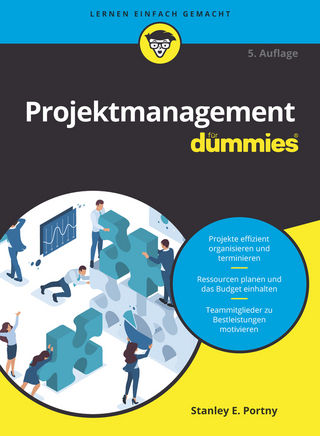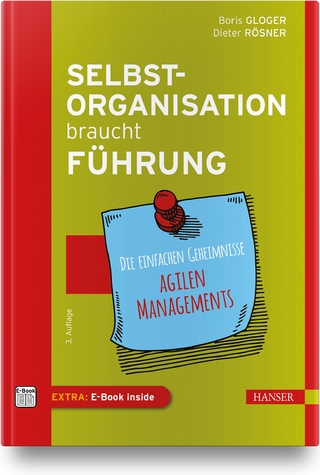
Monitoring and Evaluation Training
SAGE Publications Inc (Verlag)
978-1-4522-8891-8 (ISBN)
This one-of-a-kind book fills a gap in the literature by providing readers with a systematic approach to monitoring and evaluation (M&E) training for programs and projects. Bridging theoretical concepts with practical, how-to knowledge, authors Scott Chaplowe and J. Bradley Cousins draw upon the scholarly literature, applied resources, and over 50 years of combined experience to provide expert guidance that can be tailored to different M&E training needs and contexts, including those for novices, professionals, organizations and their staff, community members, and other groups with a desire to learn and sustain sound M&E practices.
Scott G. Chaplowe is currently a senior monitoring and evaluation (M&E) officer at the International Federation of Red Cross and Red Crescent Societies (IFRC), based in Geneva. In addition to M&E, he has over twenty-years experience in policy research and analysis, strategic planning, and capacity building and development for civil society and international organizations. He holds a MA degree from UCLA in Geography, with a focus on political ecology and natural resource management and has authored articles on urban agriculture, civil society and evaluation, coedited a book on sustainable agriculture, and developed an assortment of guides on M&E, program design, capacity assessment, and strategic planning. His initial experience in adult education was working with experiential learning and leadership with Outward Bound and the National Outdoor Leadership School (NOLS). He has since taught at universities in both the United States and abroad (China and Taiwan) and has extensive experience in the development, delivery, and evaluation of individual and organizational training (face-to-face, e-learning, and blended learning). He has provided training in M&E and related topics in North and South America, Europe, Africa, and Asia, including professional development workshops for the American Evaluation Association (AEA), the European Evaluation Society (EES), the South African Monitoring and Evaluation Association (SAMEA), the Malaysian Evaluation Society (MES), and the Sri Lankan Evaluation Association (SLEVA). For more information, visit www.ScottChaplowe.com. J. Bradley Cousins is professor of Evaluation at the Faculty of Education, University of Ottawa. Cousins’ main interests are in program evaluation including participatory and collaborative approaches, use, and capacity building. He received his PhD in Educational Measurement and Evaluation from the University of Toronto in 1988. Throughout his career he has received several awards for his work in evaluation including the Contribution to Evaluation in Canada award (CES, 1999), the Paul F. Lazarsfeld Award for Theory in Evaluation (AEA, 2008) and the AERA Research on Evaluation Distinguished Scholar Award (2011). He has published many articles and books on evaluation and was editor of the Canadian Journal of Program Evaluation from 2002 to 2010. Throughout his career, Cousins has had considerable experience planning, delivering, and evaluating evaluation training and capacity building in Canada and abroad. Internationally he led evaluation capacity building in Central and West Africa and a major three and one-half year project in India. He is currently leading a nation-wide evaluation of teacher in-service training in that country in collaboration with several of the people he had previously trained. Cousins completed a three and one-half year term as director of the Centre for Research on Educational and Community Services at the University of Ottawa in July 2015. He continues to be an active member of CRECS, which has a strong mandate for research and evaluation capacity building. For more information, visit www.crecs.uottawa.ca.
Part I: Key Concepts of M&E Training
1. M&E Training That Makes a Difference
What is M&E Training That Makes a Difference?
Systems Thinking for Training
Revisiting M&E
The Rising Demand for M&E Training
Who Provides M&E Training?
What Kind of M&E Training?
Chapter Summary
Recommended Resources
2. The Training Landscape
What is a Training?
Formal, Non-formal, Informal, and Incidental Education
Training Types – A Brief Overview
Face-to-Face Training
Distance Training and eLearning
Blended Learning
Chapter Summary
Appendices
Recommended Resources
3. The M&E Capacity Building Context
What is Evaluation Capacity Building?
M&E Capacity Building at the Individual Level
M&E Capacity Building at the Organizational Level
M&E Capacity Building in the External Environment
M&E Capacity Assessment and Strategic Planning
Chapter Summary
Recommended Resources
4. Adult Learning
What is Learning?
How Adults Learn
Andragogy
Experimental Learning
Learning Styles and Preferences
Differentiated Instruction
Learner-Centered Training
Adult-Learning Principles for Effective M&E Training
Chapter Summary
Recommended Resources
5. What Makes a Good M&E Trainer?
Trainer Competencies
Recruiting a Trainer
Chapter Summary
Appendices
Recommended Resources
Part II: A Systematic Approach to M&E Training
6. An Overview of the ADDIE Framework for Training
ADDIE as a Systematic and Systems Approach for Training
Why Have We Chosen the ADDIE for This Book?
Planning to Manage the ADDIE Process
Chapter Summary
Appendices
Recommended Resources
7. Training Analysis
Solution Analysis
Needs and Outcomes Analysis
Trainee Analysis
Context Analysis
Task Analysis
Gap and Causal Analysis
Training Analysis Report
Chapter Summary
Recommended Resources
8. Training Design
Identify Training Objectives
Preparing Learning Objectives
Organizing the Instructional Content
Designing the Training Curriculum
Designing Training Evalaution and Follow-Up
Chapter Summary
Recommended Resources
9. Training Development and Preparation
Develop Training Materials and Resources
Review and Pilot the Training
Preparing for an M&E Training Workshop
Chapter Summary
Recommended Resources
10. Training Implementation
Training Facilitation
Facilitating the Workshop Introduction, Activities, and Closing
Chapter Summary
Recommended Resources
11. Training Evaluation
What is Training Evaluation?
Training Evaluation Methods - An Overview
Training Evaluation Guidelines
Determining Who Will Conduct Training Evaluation
Chapter Summary
Appendices
Recommended Resources
Part III: M&E Training Methods and Techniques
Icebreakers
Energizers
Lectures
Discussion Activities
Subgroup Formations
Case Studies
Learning Games
Guest Speakers
Panel Discussions and Debates
Role Playing
Simulations
Demonstrations
M&E Software Activities
Learner Presentations
Practicum Experiences
Independent Learning Activities
Review Activities
Learning Assessment Activities
Training Monitoring and Evaluation Activities
Training Closing Activities
Training Follow-Up Activities
| Verlagsort | Thousand Oaks |
|---|---|
| Sprache | englisch |
| Maße | 187 x 231 mm |
| Gewicht | 820 g |
| Themenwelt | Wirtschaft ► Betriebswirtschaft / Management ► Projektmanagement |
| ISBN-10 | 1-4522-8891-7 / 1452288917 |
| ISBN-13 | 978-1-4522-8891-8 / 9781452288918 |
| Zustand | Neuware |
| Haben Sie eine Frage zum Produkt? |
aus dem Bereich


